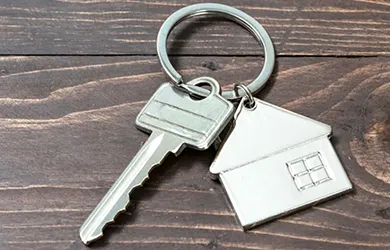Real Estate Investment Opportunities With Little To No Money
By lodha
March 15, 2023Buying a home is a dream that many Indians share, but it can be a challenging goal to achieve, especially when it comes to the financial aspect of the process. However, there are ways to purchase a home with little or zero down payment, and in this blog post, we will explore some of the options available to you:
1. Look for government schemes
The Indian government has introduced several schemes that offer financial assistance to first-time homebuyers. Some of these schemes provide subsidies or interest rate reductions that can significantly reduce your upfront costs. Check out schemes like Pradhan Mantri Awas Yojana, Credit Linked Subsidy Scheme, and others that are designed to help low-income groups and economically weaker sections of society own their homes.
2. Consider a joint loan with a family member
If you have a family member or close friend who is willing to join you in the purchase, you can opt for a joint loan. This type of loan allows you to combine your income with your co-borrowers income, which increases your chances of getting approval for a higher loan amount. Moreover, some banks offer discounts or lower interest rates for joint borrowers.
3. Use your investments or assets
If you have some investments or assets like mutual funds, shares, gold, or a property that you can sell or pledge, you can use these to generate funds for your home purchase. While selling an asset may help you to generate funds upfront, pledging an asset like gold or mutual funds can help you secure a loan without any down payment. Additionally, some banks offer loans against securities or property, which can help you to get a loan without any initial investment.
4. Negotiate with the seller
If you find a property that you like but cannot afford, you can negotiate with the seller to pay the down payment in instalments or delay it until a later date. Some sellers may be willing to offer flexible payment plans, especially if the property has been on the market for a long time.
5. Explore rent-to-own options
Rent-to-own is a scheme where you rent a property for a fixed period with the option to purchase it at a later date. This scheme allows you to save up for the down payment while also living in the property. Moreover, some rent-to-own schemes deduct a portion of the rent paid towards the down payment, which makes it easier to accumulate funds.
6. Real Estate Investment Trusts (REITs)
Another option for purchasing a home with zero down payment is through Real Estate Investment Trusts (REITs). A REIT is a company that owns, operates, or finances income-producing real estate. By investing in a REIT, you can indirectly own a stake in commercial or residential properties without the hassle of managing them yourself. REITs allow investors to purchase shares in a portfolio of real estate assets, similar to how stocks are bought and sold. As an investor, you can earn returns from rental income, capital appreciation, or both, depending on the type of REIT you invest in. Additionally, REITs offer liquidity, making it easier to buy and sell shares, which is not possible with physical real estate. Investing in REITs is a viable option for those who don't have enough money to invest in physical properties, as it requires a smaller initial investment.
While buying a home with little or zero down payment down is possible through various options such as government schemes, joint loans, using assets, negotiating with the seller, and exploring REITs. However, it's important to note that the process of buying a home should not be rushed, and it's crucial to do thorough research before making any decisions.
When buying a home, there are several factors to consider, such as the location, amenities, resale value, and more. It's also essential to opt for a Grade A developer who has a good reputation in the market and a track record of delivering quality projects. A good developer ensures that the property is built to high-quality standards, has all the necessary approvals and clearances, and offers a hassle-free buying experience.
Moreover, choosing a Grade A developer reduces the risk of potential legal issues or construction delays, which can significantly impact your investment. Therefore, it's essential to do your due diligence and research the developer's background, the quality of their projects, and the customer reviews before making any purchase. By doing so, you can make an informed decision and take a step closer to realizing your dream of owning a home.
You may also like



 Enquire
Enquire
 Call
Call
 chat
chat
 Search
Search





